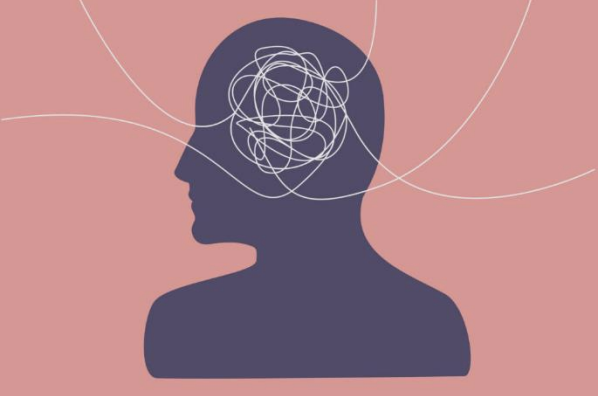By Dequindre Jernigan, MA, LPC
You may already be familiar with cognitive distortions. You know, those little negative thoughts that influence our actions? No? Well, let’s talk about it. We all have thought patterns, whether they’re more negatively inclined or relatively positive. Think about a time when you didn’t do your best at something. It could have been receiving a bad test grade, an attempt to make a friend, or your performance at work. Typically, we all have certain expectations of ourselves or a standard we want to live up to. When we fall short of that, it can be mentally damaging for some people because of their thinking patterns. There are many cognitive distortions to discuss, but we’ll focus on some of the most common ones. Let’s start with polarized thinking.
1. Polarized Thinking
You may have heard someone use the term “polar opposites” before, usually referring to a person’s characteristics or personality. With polarized thinking, a person has an “All or Nothing” attitude. Anything less than perfect doesn’t count. These are the individuals who are labeled as “perfectionists” and you probably know a few friends or family members who fit this category. Things are either black or white for these types of people. There isn’t an in-between. For example, someone who is used to getting A+ on every test is overly critical of themselves when they receive an A.
2. Mental Filtering
There are two types of mental filtering: Negative Mental Filtering and Disqualifying the Positive. Think about it this way: A filter is a lens through which something is altered or changed. There are many types of filter examples, such as water filters, and social media filters; some people even filter their language in certain social settings. So it shouldn’t be surprising that some individuals mentally filter their everyday experiences. Negative Mental Filtering is when an individual only focuses on the negatives of an experience, leaving no room for the positive. When this happens, the negativity becomes magnified making the situation appear worse than it actually is. An example would be receiving constructive criticism at work. There’s a difference between criticism and constructive criticism. Constructive criticism is meant to help a person improve in some way while criticism only points out the negative aspects of something. Someone who struggles with negative mental filtering will do just that: view constructive criticism as criticism even if the person pointed out some type of growth or improvement.
3. Overgeneralization
Some of you may be familiar with this one. In this case, a person focuses on one negative event or instance and attributes it to other things. I like to also refer to this one as the Domino Effect. One bad thing, such as waking up late for work can make a person think, “This is going to be a horrible day.” So what happens? Usually, the day isn’t so great, but that’s because the person has already made that up in their mind. There is power in the way we think and therefore, in the words that we speak. Our thoughts influence our actions and we must be careful with our thinking patterns.
4. Jumping to Conclusions
We’ve all done this at some point in our lives, right? Oftentimes, it is without any real evidence and is solely based on assumptions. These assumptions can be related to “mind reading” or assuming what other people’s thoughts or feelings are towards you or “fortune telling”, which is assuming how something is going to turn out without any concrete evidence. For example, a kid who transfers to a new school in the middle of the year assumes she isn’t going to make any friends and that the school year will be a bad one for her.
5. Catastrophizing
Like Mental Filtering, Catastrophizing has two components: Magnification and Minimization. Magnification occurs when a person exaggerates a situation, in which a person will think worst-case scenario. This can be problematic because there is no proof that the worst-case scenario will play out. This leads to increased anxiety. With Minimization, a person tends to dismiss positive experiences. This can be for a variety of reasons. Sometimes individuals don’t think they deserve recognition or the chance to be happy.
There are many other types of cognitive distortions, such as Personalization, Blaming, Labeling, Always Being Right, Should Statements, Emotional Reasoning, Control Fallacies, Fallacy of Change & Fairness, and Heaven’s Reward. To some degree, all of these cognitive distortions are similar, but at their core, they are all irrational or unhealthy thinking patterns. If you’ve recognized any of these cognitive distortions within yourself, it may be a sign to talk to a mental health professional. If they are causing social, academic, occupational, or affective distress, make the decision today to do something about it to improve your mental health.
Dequindre Jernigan, MA, LPC
Dequindre Jernigan (Quin), is a graduate of Wayne State University where she obtained her Master’s in Counseling Education. She currently works as a Licensed Professional Counselor treating children, adolescents, adults, and couples. Quin offers Christian counseling and specializes in cognitive behavior therapy (CBT) as well as rational emotive behavior therapy (REBT). She helps treat depression, anxiety, PTSD, mood disorders, self-esteem, and stress.


